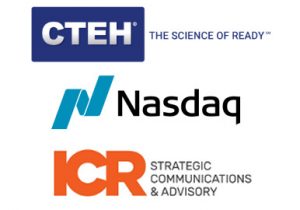By Jeremy Cohen and Jeff Zilka
On Friday, July 10th, the SEC proposed a rule change raising the mandatory threshold for filing 13F reports to $3.5 billion in assets under management (AUM). Not a small change, the SEC’s plan would raise 35-fold (the current minimum is $100 million) the level at which money managers are required to disclose each quarter the companies they own.
As advisors to companies about how they should best engage the investment community, we see significant negative outcomes from this proposed change. In exchange for eliminating cheap and automated 13F filing processes, which will at best marginally benefit asset managers, the capital markets will lose transparency into $2.3 trillion of equity investments from nearly 4,500 money managers, according to the National Investor Relations Institute. Small- and mid-cap companies, which have market capitalizations of less than $10 billion, will be especially hurt.
The SEC’s proposal comes at a time when it is asking companies to “provide robust and transparent disclosures about how they are dealing…with the current (COVID-19) environment.” In our advisory role, we push our clients to communicate openly so investors can better understand their operations, helping achieve a fair valuation. It is a stunning irony that the very transparency for which the SEC advocates will be impaired if its suggested rule change takes effect.
We fear the SEC’s proposal will create harm in two ways. It will create much higher levels of vulnerability to under-the-radar activist investors who will be able to build positions in the shadows, putting executives and their companies in a bind with little warning. And it will remove a critical source of information companies use today to identify current investors and target potential new shareholders, which is the bedrock of an effective investor relations program.
To demonstrate the danger of this potential change, consider the number of activist asset managers that fall below the $3.5 billion threshold. While some famed managers, including ValueAct, Third Point, and Trian Partners, will continue to report their holdings, more than 60 percent of activist investors, including prominent activists JANA Partners and Sachem Head, manage assets below the SEC’s proposed $3.5 billion cut-off and would no longer file quarterly reports, according to data from research service Activist Insight. The less-than-$3.5 billion threshold includes four-out-of-ten of the most frequent activists in 2019, according to investment bank Lazard, meaning they would have been able to conceal their holdings as they built their positions.
Ultimately, this burden will be felt not by America’s biggest companies, but by smaller businesses with fewer resources to defend themselves. These are the issuers activists target most frequently, as 75% of activist campaigns in North America last year were waged against them, according to Activist Insight.
The top reasons for activist engagement include gaining board representation, removal of directors or executives, or to support or oppose a merger or acquisition. All three generate highly disruptive contests that can radically alter a company’s path forward, impacting both executives and the thousands of people they employ.
We recommend companies engage with all investors, whether they have a history of activism or not, as soon as their investment becomes apparent. Removing notification through quarterly 13F filings, as the SEC proposes, will make this vastly more difficult, and will force companies to wait for the activist’s “knock on the door,” versus reaching out proactively, as is the best practice.
We see the SEC’s proposed change as a step backwards for shareholder democracy. When we work with publicly-traded clients, we champion transparency, as its elimination rarely promotes optimal valuation and capital markets efficiency. We hope the SEC recognizes this and rather than curtailing transparency in the service of reducing de minimis 13F filing costs for asset managers, it reconsider this ill-advised proposal.
Jeremy Cohen and Jeff Zilka are senior executives with Edelman’s Financial Communications practice
CorpGov Contact:
John Jannarone, Editor-in-Chief








